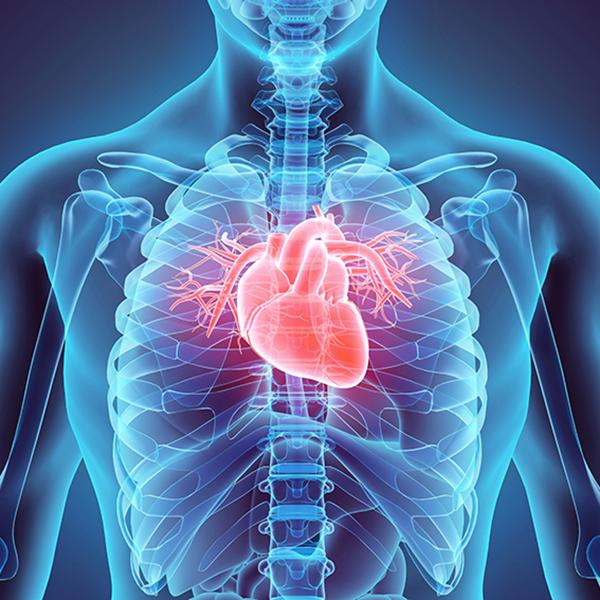In the intricate tapestry of human health, hormones play a pivotal yet often understated role in our well-being. Among these hormonal agents, testosterone has long been recognized primarily for its influence on muscle mass and libido. However, emerging research is gradually unraveling a more complex narrative—one that places testosterone therapy at the crossroads of cardiovascular health. As we delve into the nuances of this treatment, we will explore how balanced testosterone levels may influence heart health, the potential benefits and risks of therapy, and the ongoing debates within the medical community. Join us on this journey as we navigate the intersection of endocrine regulation and cardiovascular care, uncovering the myriad ways in which testosterone could shape our understanding of heart health in both men and women.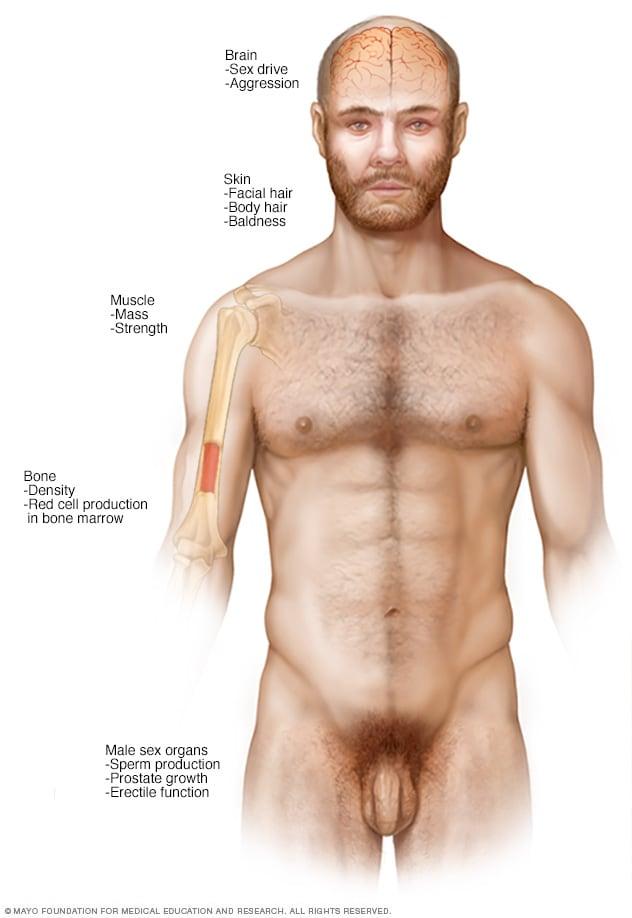
The Role of Testosterone in Cardiovascular Function
Testosterone plays a pivotal role in modulating various cardiovascular functions, influencing both heart health and overall vascular integrity. Research has shown that adequate testosterone levels are crucial for maintaining a healthy heart rhythm and preventing the thickening of arterial walls. This hormone contributes to the regulation of red blood cells, helping to enhance oxygen delivery throughout the body. Moreover, testosterone has a direct impact on endothelial function, which is vital for maintaining vascular elasticity and preventing atherosclerosis.
The interplay between testosterone and cardiovascular health extends beyond its basic biological functions. Consider the following points:
- Cholesterol Levels: Testosterone therapy may play a role in improving lipid profiles, potentially reducing bad cholesterol (LDL) levels.
- Blood Pressure Regulation: Adequate testosterone levels have been associated with lower blood pressure, contributing to overall heart health.
- Inflammation Reduction: Testosterone exhibits anti-inflammatory properties, which can help mitigate cardiovascular diseases linked to chronic inflammation.
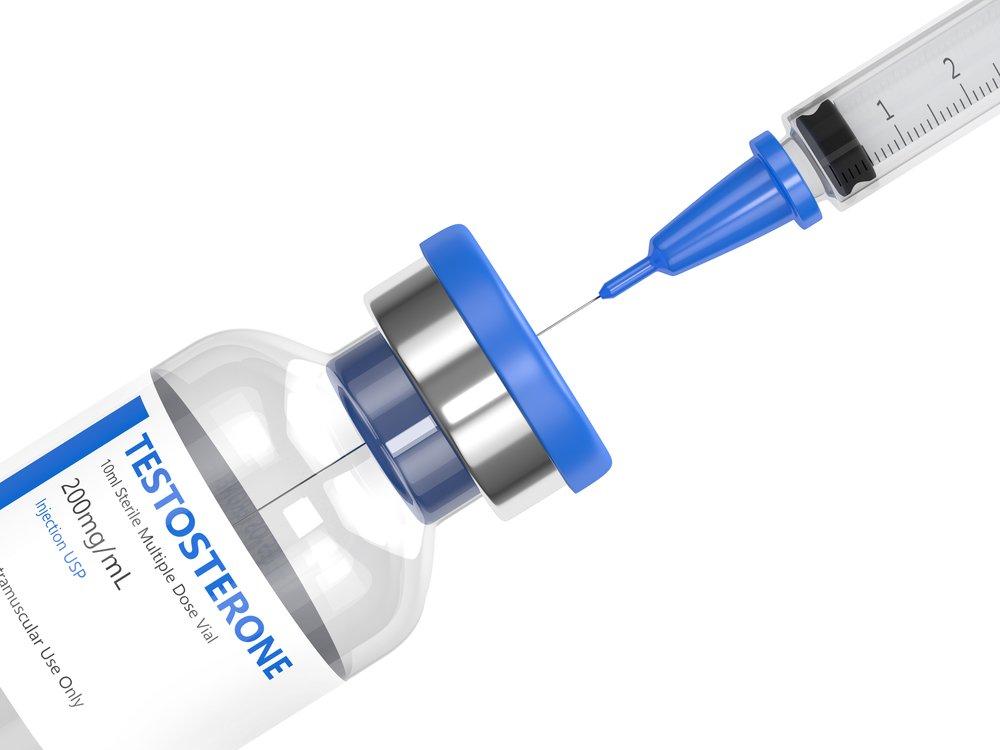
Understanding the Benefits of Testosterone Therapy
Testosterone therapy has emerged as a compelling avenue for enhancing cardiovascular health, particularly in men experiencing low testosterone levels. Research indicates that adequate testosterone levels can positively impact various aspects of heart health, including improved blood flow and reduced fatigue, which are crucial for maintaining an active lifestyle. By balancing hormone levels, testosterone therapy may contribute to lower instances of cardiovascular diseases, supporting the heart’s overall function. This treatment could play a vital role in alleviating symptoms that compromise physical activity, thus promoting a healthier heart.
Moreover, the potential benefits of testosterone therapy extend beyond physical rejuvenation. Studies suggest a correlation between optimal testosterone levels and lower cholesterol levels, which is integral to reducing cardiovascular risks. Patients may experience a shift in body composition, leading to decreased fat accumulation and improved muscle mass—two factors beneficial for heart health. To illustrate this, consider the following table that summarizes key benefits associated with testosterone therapy:
| Benefit | Description |
|---|---|
| Improved Blood Circulation | Enhances oxygen transportation throughout the body. |
| Reduced Fatigue | Increases energy levels, encouraging physical activity. |
| Lower Cholesterol Levels | May contribute to overall heart health. |
| Better Muscle Mass | Supports healthy body composition and metabolic function. |
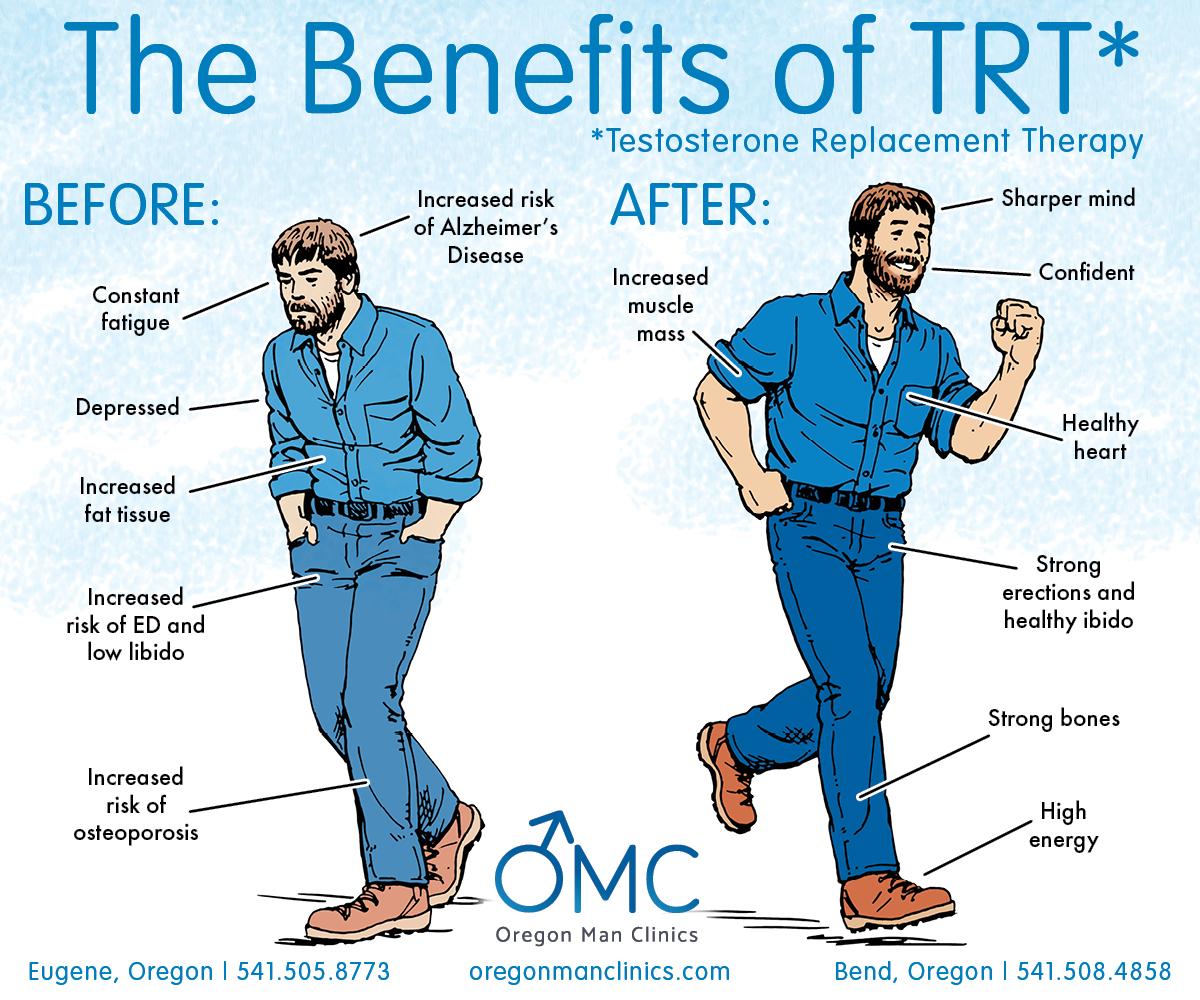
Evaluating Risks and Considerations for Heart Health
When considering testosterone therapy, it’s essential to weigh the potential benefits against various risks associated with cardiovascular health. Testosterone plays a significant role in numerous bodily functions, including maintaining muscle mass and regulating fat distribution, which can indirectly influence cardiovascular function. However, an increase in testosterone levels may elevate the risk of certain cardiovascular events, especially in older adults or those with pre-existing heart conditions. Some critical factors to evaluate include:
- Age: Older patients may face higher risks.
- Existing Health Conditions: Conditions like hypertension or diabetes can complicate therapy outcomes.
- Dosage and Administration: Higher doses may correlate with increased risk.
- Monitoring: Regular check-ups are crucial to assess heart health during treatment.
Research indicates a complex relationship between testosterone levels and cardiovascular outcomes. While low testosterone has been associated with increased cardiovascular risks, the implications of supplementation remain under investigation. It is helpful to discuss these nuances with a healthcare provider before initiating therapy. Analyzing patient-specific data can aid in making informed decisions regarding testosterone use. Consider the following factors to assess individual risk vs. benefit:
| Factor | Impact on Heart Health | Considerations |
|---|---|---|
| Testosterone Level | Low levels associated with risks | Regular monitoring required |
| Body Mass Index (BMI) | Higher BMI can exacerbate risks | Weight management may mitigate risks |
| Age | Risk increases with age | Younger patients may benefit more |
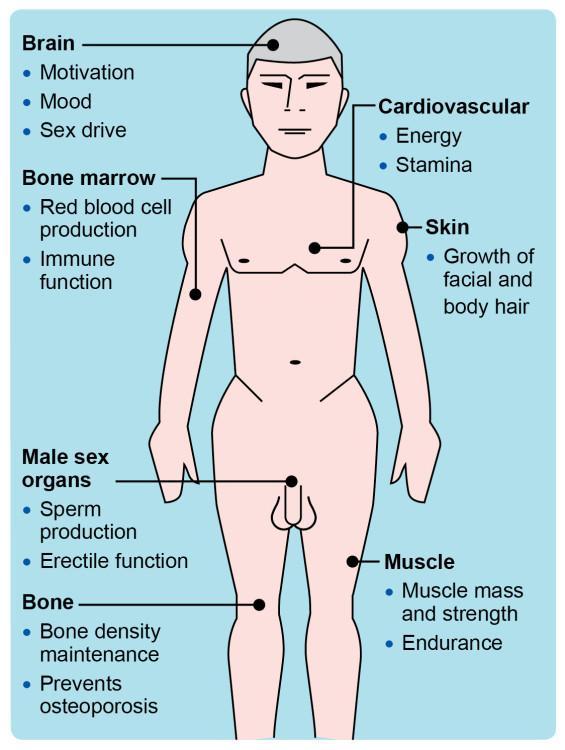
Evidence-Based Research Supporting Hormone Treatment
The relationship between testosterone therapy and cardiovascular health has been the subject of extensive research, demonstrating promising results in recent studies. Evidence suggests that men with low testosterone levels are at a heightened risk for cardiovascular diseases, including hypertension and coronary artery disease. In several clinical trials, testosterone replacement therapy (TRT) has been shown to improve lipid profiles, reduce arterial stiffness, and enhance overall cardiovascular function. Specifically, researchers noted improvements in key biomarkers such as HDL cholesterol and insulin sensitivity, which are crucial for maintaining heart health.
Moreover, a systematic review published in renowned medical journals revealed encouraging data about the long-term benefits of testosterone therapy in older men. The following aspects were highlighted in the review:
- Reduced incidence of heart attack: A significant decrease in myocardial infarction rates among individuals receiving TRT.
- Decreased inflammation: Lower levels of inflammatory markers associated with heart disease.
- Improved physical function: Enhanced exercise capacity and quality of life reported by participants on testosterone therapy.
To encapsulate these findings, the table below summarizes the key studies that have shaped our understanding of testosterone therapy in relation to cardiovascular health:
| Study | Participants | Findings |
|---|---|---|
| TRT and CAD Study | 250 men, ages 40-65 | Lowered risk of CAD by 30% |
| Testosterone and Heart Function | 150 older men | Improved left ventricular function |
| Endocrine Society Guidelines | Guidelines based on 10 studies | Recommended TRT for hypogonadal men with CVD risk |
Lifestyle Modifications to Enhance Therapy Outcomes
To maximize the benefits of testosterone therapy, integrating specific lifestyle changes can significantly bolster overall cardiovascular health. Regular physical activity is essential; engaging in aerobic exercises such as walking, running, or swimming can enhance heart function and improve mood. Additionally, strength training not only helps build muscle mass but also contributes to better testosterone levels. Pairing these activities with a balanced diet rich in whole foods, such as fruits, vegetables, lean proteins, and healthy fats, can create a synergistic effect that supports hormone therapy.
Moreover, managing stress and ensuring adequate sleep are critical components that often go overlooked. Embracing practices such as mindfulness meditation or yoga can reduce cortisol levels, which may hinder testosterone effectiveness. Furthermore, targeting sleep hygiene to get 7-9 hours of quality rest can aid in hormone recovery and rejuvenation. Consider the following table for a quick reference on these lifestyle modifications:
| Modification | Benefit |
|---|---|
| Regular Exercise | Enhances heart health and testosterone levels. |
| Balanced Diet | Supports overall well-being and hormone balance. |
| Stress Management | Reduces negative hormone impact. |
| Adequate Sleep | Promotes hormone recovery. |
Monitoring and Adjusting Testosterone Levels
Monitoring testosterone levels is essential for ensuring that therapy is both safe and effective, particularly for those seeking to improve cardiovascular health. Regular blood tests can provide a comprehensive overview of hormone levels, typically measured in nanograms per deciliter (ng/dL). Physicians usually consider the following factors when assessing testosterone levels:
- Baseline Levels: Establishing initial testosterone levels provides a reference for evaluating the effectiveness of therapy.
- Symptoms Assessment: Monitoring physical changes and symptoms like mood, libido, and energy is crucial for tailoring treatment.
- Cardiovascular Markers: Keeping track of blood pressure, cholesterol levels, and other cardiovascular health indicators helps ensure that testosterone therapy does not cause adverse effects.
Adjustment of testosterone therapy should be a dynamic process based on ongoing evaluations. If levels are found to be too low or excessively high, physicians may consider modifying the dosage or changing the method of administration. Here’s a quick overview of common adjustment strategies:
| Adjustment Type | Description |
|---|---|
| Dosage Alteration | Increasing or decreasing the amount of testosterone administered. |
| Administration Route | Switching from injections to patches or gels for better absorption. |
| Frequency Change | Adjusting the frequency of dosing to maintain stable hormone levels. |
Consulting Healthcare Professionals for Optimal Care
When considering testosterone therapy, it is crucial to engage with healthcare professionals who can guide you through the complexities of treatment and its impacts on cardiovascular health. A comprehensive evaluation is essential, as individual factors can significantly influence how testosterone therapy will affect your heart. Collaborate with specialists, such as endocrinologists and cardiologists, who can provide insights tailored to your specific health profile, including:
- Personal Medical History: Understanding past conditions and treatments.
- Current Health Status: Conducting tests to assess heart function and hormone levels.
- Potential Risks: Analyzing possible side effects related to cardiovascular health.
- Monitoring Procedures: Establishing a plan for regular check-ups during therapy.
Informed discussions about the benefits and risks of testosterone therapy can ultimately lead to a more balanced approach when considering its application. Establishing clear communication with your healthcare provider is key to optimizing care. Tracking results and adjusting treatments as needed are critical steps in the management process. Here is a simple overview of factors to monitor:
| Factor | Importance |
|---|---|
| Blood Pressure | Monitor for hypertension risks. |
| Cholesterol Levels | Assess heart health implications. |
| Heart Rate | Evaluate for irregularities. |
| Symptoms | Track any side effects experienced. |
Q&A
Q&A: Understanding Testosterone Therapy for Cardiovascular Health
Q1: What is testosterone therapy?
A: Testosterone therapy is the use of testosterone, a vital hormone primarily associated with male characteristics, to address low testosterone levels in the body. This treatment can come in various forms, including injections, patches, gels, and pellets, and is primarily prescribed to alleviate symptoms of hypogonadism, such as fatigue, weight gain, and mood disturbances.
Q2: How does testosterone relate to cardiovascular health?
A: Testosterone plays a complex role in cardiovascular health. Some studies suggest that adequate testosterone levels may contribute to heart health by improving endothelial function, promoting healthy blood circulation, and reducing fat mass. However, the relationship is intricate, as both low and excessively high testosterone levels can pose risks to heart health.
Q3: What are the potential benefits of testosterone therapy for the heart?
A: Potential benefits include improved circulation, increased muscle mass, better mood, and potentially reduced risk of heart disease in men with low testosterone levels. Some research suggests that testosterone could help lower visceral fat, a significant risk factor for cardiovascular diseases.
Q4: Are there risks associated with testosterone therapy?
A: Yes, like any medical treatment, testosterone therapy carries risks. These may include an increased risk of blood clots, worsening of sleep apnea, prostate enlargement, and even increased heart attack risk in certain populations. It is vital to discuss these risks with a healthcare provider before starting therapy.
Q5: Who should consider testosterone therapy?
A: Testosterone therapy is typically recommended for men diagnosed with low testosterone levels accompanied by specific symptoms. It’s essential for individuals to undergo thorough medical evaluation and testing to determine if they are suitable candidates for therapy, especially considering existing health conditions.
Q6: How can someone know if they have low testosterone?
A: Symptoms of low testosterone can include fatigue, reduced libido, depression, and loss of muscle mass. A healthcare professional can confirm low testosterone levels through blood tests, measuring total and free testosterone concentrations at appropriate times of the day, usually in the morning.
Q7: Is there ongoing research regarding testosterone therapy and heart health?
A: Absolutely! Research is ongoing to better understand the effects of testosterone therapy on cardiovascular health. Studies are examining long-term outcomes, the impact on different populations (like older men versus younger men), and the mechanisms behind testosterone’s interaction with heart health. Results may lead to more tailored approaches to therapy.
Q8: What should someone do if they’re considering testosterone therapy?
A: Consult with a healthcare provider who specializes in hormonal therapies and cardiovascular health. A thorough assessment—including discussing symptoms, medical history, and current health status—will help determine if testosterone therapy is a suitable option. Keep an open mind about both the benefits and risks, as well as alternative treatments if therapy is not indicated.
Q9: Are there lifestyle changes that can support testosterone levels and heart health?
A: Yes! Regular exercise, a balanced diet rich in healthy fats, adequate sleep, and stress management can positively influence testosterone levels and overall heart health. Maintaining a healthy weight and avoiding smoking and excessive alcohol consumption are also essential lifestyle factors to consider.
Q10: Where can readers find more information on this subject?
A: Readers interested in testosterone therapy and its effects on cardiovascular health should refer to reputable medical resources, consult their healthcare providers, and explore scholarly articles and reviews in medical journals. Understanding both the science and personal context is key to making informed health decisions.
To Conclude
the exploration of testosterone therapy as a potential avenue for enhancing cardiovascular health presents an intriguing crossroads of science, medicine, and individual well-being. While preliminary studies suggest promising benefits, the intricate relationship between hormones and heart health warrants careful consideration and further research. As we navigate this complex landscape, it is essential for patients and healthcare providers alike to assess the risks and rewards with a critical eye.
Ultimately, as our understanding of hormonal influences on cardiovascular health continues to evolve, so too will our approaches to prevention and treatment. For those contemplating testosterone therapy, an informed dialogue with healthcare professionals can illuminate the path forward, ensuring that choices made today can pave the way for a healthier tomorrow. In the quest for optimal cardiovascular health, knowledge remains our most powerful ally.

